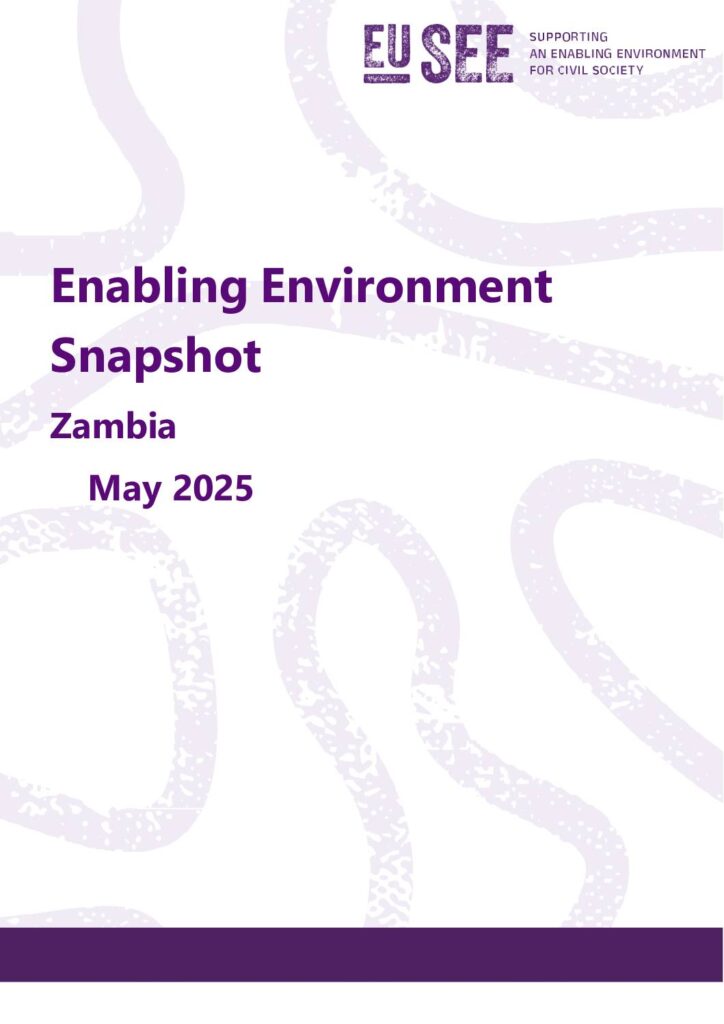Zambia has experienced a history of significant tests of its democratic institutions over the past 15 years, with power shifting from ruling parties to the opposition in both 2011 and 2021. These transitions, although smooth, were marked by tension, notably the over 100 days of incarceration on trumped-up treason charges and reported torture of current President Hakainde Hichilema by his predecessor Edgar Lungu, in the build-up to the 2011 election.
The enabling environment for civil society organisations (CSOs) has evolved alongside these political changes. The current government consistently reassures the public of its commitment to restoring the rule of law, fostering good governance, and fighting corruption. Despite facing multiple accusations of using state machinery and law enforcement to neutralise political opponents, the government insists it does not possess the authoritarian traits of the previous regime. There is a general belief amongst CSOs and citizens that there has been a positive shift to a more open and supportive environment for their activities.
A significant achievement for Zambian citizens and CSOs under the current government was President Hichilema’s ban on “cadre-ism.” This practice involved political hooligans who, taking advantage of their affiliation with the ruling party, intimidated citizens, civil society and the opposition with acts of violence. Anyone who did not align with the government of the day or was involved in holding them accountable was targeted and censured, thereby contributing to a restrictive environment for civil society and the exercise of freedom of expression, assembly and association.The 2024 Varieties of Democracy (V-Dem) report showed Zambia ranked 3rd among nine countries that had previously undergone autocratisation and are now in a phase of democratisation. This shows a positive shift from the former authoritarian regime that was known for suppressing human rights and fundamental freedoms .

